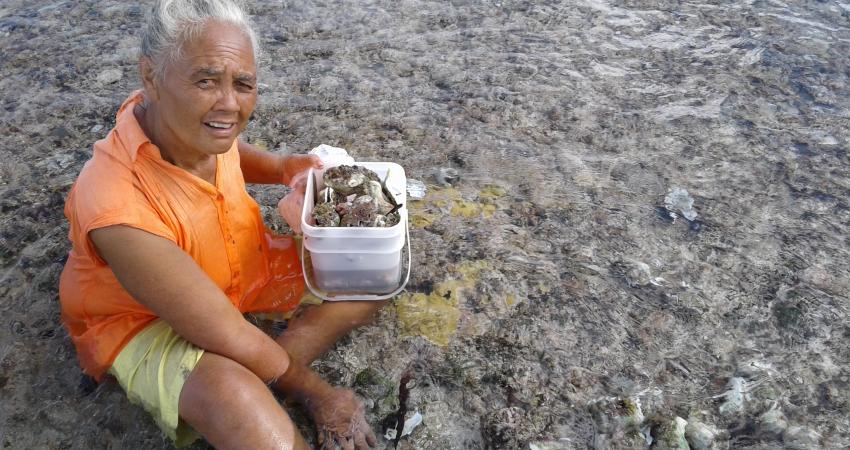
Representatives from the Cook Islands, Federated States of Micronesia (FSM), Fiji, Kiribati, Samoa, Solomon Islands and Tonga participated in a three-day virtual workshop held from 15-17 July, 2020. The virtual workshop discussed gender, social inclusion and human rights principles in the coastal fisheries and aquaculture sectors and ended with recommendations for solution-oriented actions to improve the integration of these key principles into legal frameworks in Pacific Island Countries (PICs).
The Pacific-European Union Marine Partnership (PEUMP) programme partnered with the Pacific Community (SPC) Fisheries Aquaculture Marine Ecosystems (FAME) division, the Regional Rights Resource Team (RRRT), the Social Development Programme (SDP) and non- government partners such as the Wildlife Conservation Society (WCS) to provide technical assistance and facilitation to the regional workshop.
The virtual workshop provided a space for inter-disciplinary dialogue amongst PICs and key partners. The PEUMP Gender Specialist provided an overview of human rights and gender concepts in the context of coastal fisheries to enhance general understanding to improve gender and human rights mainstreaming into national polices, laws and actions.
Discussions also touched on the implications of COVID-19 on broader human rights issues, as well as the increasing vulnerability of Pacific people, particularly women in the fisheries sector. Specifically, some countries highlighted that the pandemic has impacted women’s fishing activities such as gleaning and work in processing facilities, job losses and their effect on household incomes.
Over the past two years, the SPC has undertaken research to study how gender and social inclusion are addressed in the coastal fisheries and aquaculture sectors. A legal analysis was conducted in 2019-2020 to determine how far the gender equality principle and human rights have been incorporated into national legal frameworks in coastal fisheries and aquaculture in selected PICs. The legal study analyses national legislation against gender and human rights commitments made by each country in coastal fisheries and aquaculture and compliments the recent SPC gender and fisheries assessments conducted in FSM, Fiji, Samoa, Solomon Islands, Tonga and Vanuatu.
The country-driven gender and fisheries assessments support PICs to better understand gender, social inclusion and human rights issues in coastal communities, in particular, population groups most marginalised because of their gender, social or economic status.
The key findings of the assessments will contribute towards the development of more informed policy frameworks as well as sector-specific delivery through livelihood support, creating and accessing markets, training, and the design of appropriate fisheries programmes to mainstream gender and human rights approaches.
At the regional level, the reports will improve the understanding of sector-specific aspects of gender, social inclusion and human rights to inform the implementation of the SPC’s New Song for Coastal Fisheries (Noumea Strategy), which includes various outcomes such as more equitable access to benefits and decision-making within communities, including women, youth and marginalised groups and taking into account equity issues, especially those involving gender and youth.